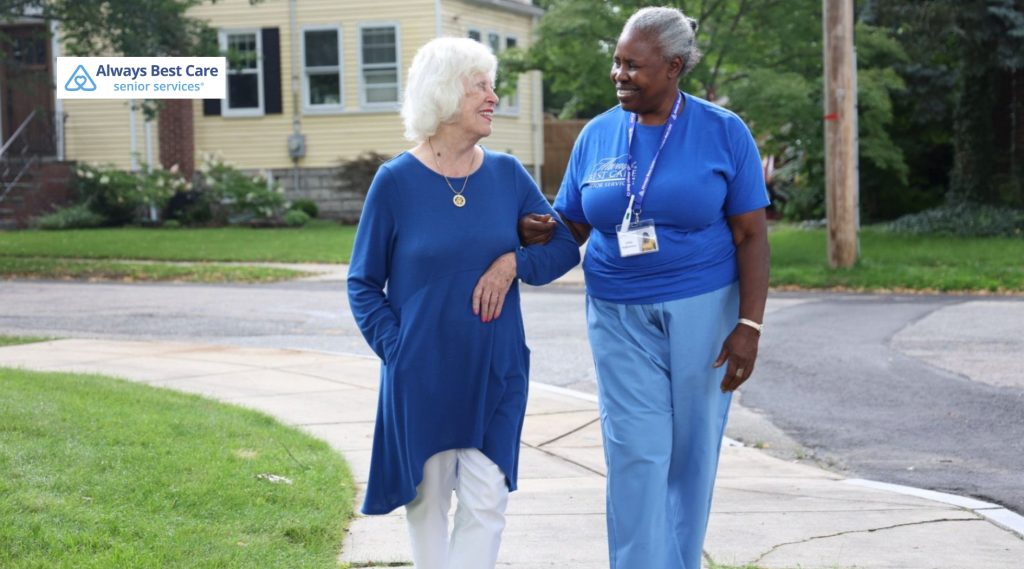How to Know If Hospice Care is the Right Choice in Chapel Hill, NC

Caring for someone facing a serious illness isn’t easy. The decisions are tough, emotions run high, and no one hands you a manual for what comes next. At Always Best Care of Chapel Hill, we know these crossroads can feel overwhelming. But recognizing when it might be time for hospice care isn’t about giving up—it’s about bringing comfort, dignity, and peace to your loved one’s days.

What you will learn:
- What hospice care is and how it focuses on providing comfort, dignity, and peace to both patients and their families.
- The physical, emotional, and behavioral signs that may indicate it’s time to consider hospice care for your loved one.
- How to start the conversation about hospice care with your loved one, and why it’s important to address it sooner rather than later.
- The range of services hospice provides, from pain management to emotional and spiritual support, and how Always Best Care of Chapel Hill can help.
Table of Contents
What Is Hospice Care?
Hospice care steps in when someone is living with a life-limiting illness and curative treatments just aren’t the focus anymore. The goal? Make every moment count by easing pain, managing symptoms, and offering emotional and spiritual support—for both the person and the people who love them. Best of all, this care can happen right at home, in a specialized center, or at a long-term care facility, and is usually covered by Medicare, Medicaid, and most private insurance plans.

Key Signs It Might Be Time for Hospice Care in Chapel Hill, NC
Sometimes, the body starts sending signals that extra help is needed. Here are some telltale signs:
- Frequent hospital stays or ER visits in the past few months
- Significant weight loss without improvement
- Breathing troubles, even at rest, or needing oxygen more often
- Pain that’s tough to control with usual medications
- Recurring infections or slow recovery from illness
- Trouble moving around, like needing help to get out of bed or walk to another room
- Struggles with daily tasks, such as bathing, dressing, or eating independently
If these start stacking up, it might be time to chat with your loved one’s doctor about hospice care.

Emotional and Behavioral Clues
Physical changes aren’t the only signals. Sometimes, the biggest hints come from shifts in mood and behavior:
- Pulling away from social time or wanting to sleep more
- Losing interest in favorite hobbies or routines
- Feeling more anxious, sad, or fearful about what’s happening
- Becoming confused or disoriented
These changes show that illness takes a toll on the spirit, not just the body. Keeping an eye out for these can help you decide when a little extra support might make all the difference.

When Doctors Recommend Hospice Care
Physicians might suggest hospice when:
- There’s a terminal diagnosis, with a prognosis of six months or less if the illness runs its usual course
- Treatments aimed at curing the disease are no longer working or have been stopped
- The focus moves from fighting the illness to making each day as comfortable and meaningful as possible
How Hospice Care Helps—And What to Expect
Choosing hospice isn’t about less care—it’s about the right care. Here’s what you can expect from hospice services with Always Best Care of Chapel Hill:
- Pain and symptom relief with a team of caring professionals
- Emotional and spiritual support for patients and families alike
- 24/7 help for those urgent questions or tough nights
- Respite care to give family caregivers a much-needed breather
- Guidance for planning and decision-making at life’s crossroads

Starting the Conversation: Tips for Families
Talking about hospice can be one of the hardest conversations you’ll ever have. But a gentle approach can help everyone feel heard and supported:
- Find a calm, private moment
- Listen to your loved one’s worries and wishes
- Use caring, honest words—focus on comfort, not giving up
- Bring the doctor into the conversation for reassurance and guidance
Why Waiting Can Be Hard on Everyone
Putting off the discussion can mean missing out on precious time spent in comfort, surrounded by support. Studies even show that hospice care might help some folks live longer by reducing stress and discomfort. More than that, it ensures the final chapter is written with dignity and peace.
How Always Best Care of Chapel Hill Supports You
At Always Best Care of Chapel Hill, we get how complicated and emotional these decisions can be. Our job is to walk with you, offering compassion, knowledge, and local connections to trusted hospice providers. We believe every family deserves to feel supported—no matter what lies ahead.
FAQs About Hospice Care in Chapel Hill, NC
Q: What’s the difference between hospice and palliative care?
A: Palliative care can begin at any stage of illness, focusing on symptom relief, while hospice is specifically for those nearing life’s end, when curative treatments have stopped.
Q: Does hospice mean giving up hope?
A: Not at all. Hospice is about shifting hope toward comfort, dignity, and meaningful time together.
Q: Can hospice care happen at home?
A: Absolutely! Many people prefer the comfort and familiarity of home, and hospice teams can provide most services right there.
Q: Is hospice only for cancer patients?
A: Nope. Hospice is for anyone with a life-limiting illness—heart disease, dementia, lung conditions, and many others.
Q: How do we pay for hospice care?
A: Most hospice care is covered by Medicare, Medicaid, and many private insurance plans, so cost doesn’t have to be a barrier.

Ready to Make Every Moment Count? Contact Always Best Care of Chapel Hill Today for Compassionate Hospice Support!
Recognizing the signs that it’s time to consider hospice care isn’t giving up—it’s choosing comfort, respect, and peace of mind for your loved one. At Always Best Care of Chapel Hill, we’re here to support you, answer your questions, and help your family find the care that feels right. When you’re ready, reach out and let us walk this journey with you.
Contact Always Best Care of Chapel Hill at (336)270-4352 to learn more and schedule your free consultation.





